September 2022
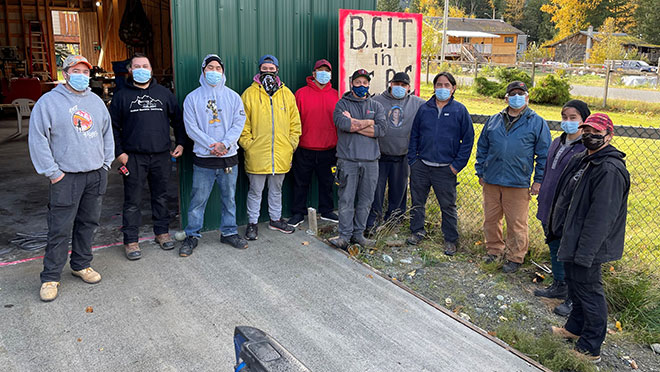
Home EnergySave program builds Indigenous capacity
The Fraser Basin Council's First Nations Home EnergySave program supports Indigenous communities with training and capacity building to improve the energy performance of their homes and other buildings. In B.C., Indigenous households face disproportionately higher home energy costs. For example, many remote communities rely on expensive and polluting diesel fuel for power generation.
Home EnergySave helps Indigenous communities plan for and implement energy-efficient new construction and retrofits, increase awareness about the value of energy-efficient housing and available resources, and share success stories. The program's Ask an Energy Specialist supports First Nations communities that are interested in housing energy efficiency, but that are in the early stages of planning or implementation.
With our support, the program will continue until 2025. Interested B.C. Indigenous communities should contact Tom Welfare by email or call him at 604 240 4453.
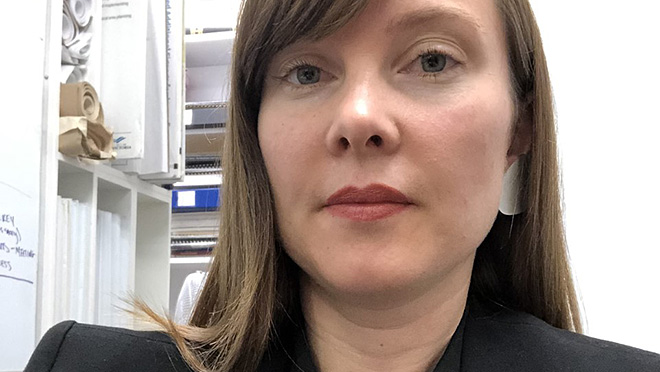
Say hello to Robyn Webb
Robyn Webb has joined BC Hydro as the Sustainable Communities program manager for local government conservation and climate action. Her name should ring familiar to anyone working to advance community-scale climate policy in B.C. Before joining our team, Robyn served as the Community Energy Association's climate solutions lead, and prior to that she was a community energy specialist with the City of Victoria. Robyn has designed and implemented climate action plans, retrofit programs, and new building decarbonization policies.
In her new role, Robyn will bring her years of experience to managing the Sustainable Communities program. She looks forward to interacting with all of you in the coming months.
Welcome aboard, Robyn! We're thrilled to have you on the team.
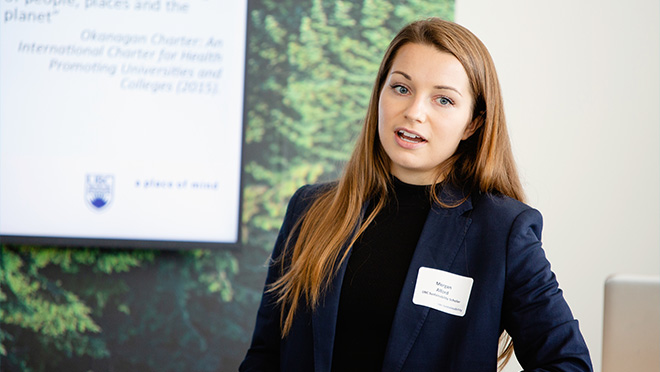
UBC grad students gear up for real-world research
The UBC Sustainability Scholars program is now inviting applications for its 2023 cohort. BC Hydro funds the successful long-running program that places PhD and Masters-level students with local governments and partner organizations to research barriers and opportunities associated with the transition to low-carbon, all-electric communities.
For example, one recent project aimed to help homeowners conduct energy retrofits using architectural features and materials of heritage value. Find out more about past projects.
We will fund UBC Sustainability Scholars projects that support the transition to net-zero, all-electric buildings and electric vehicles. Funding is for 250 hours of student work between May and August 2023. Applications are due by November 18, 2022.
To receive an information package about the funding offer and how to submit a proposal, please contact us by email.
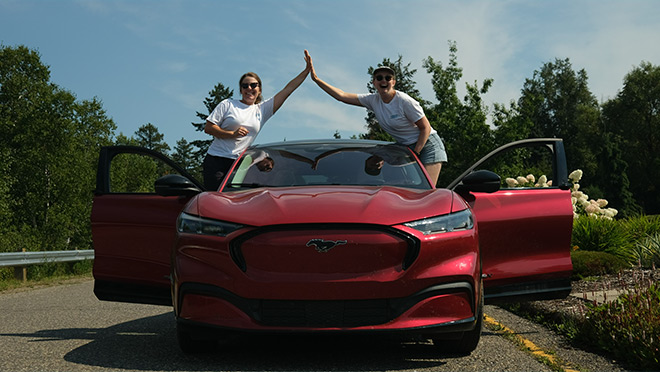
Road tripping around rural B.C. with an all-electric muscle car
Over the summer, electric mobility experts from the Community Energy Association pulled into 13 communities across central and northern B.C. in an eye-catching, candy-apple red electric Mustang Mach-E.
They were there for the Charge North Tour, which aimed to bring first-hand experiences with electric mobility to our province's rural communities. The team answered questions about zero-emission vehicles, offered test drives in the Mach-E, and met with anyone and everyone interested in electric vehicles (EVs). Throughout July and August, the Charge North team chatted with hundreds of residents from Logan Lake to Terrace, and all points between, and more than 100 residents took the Mustang for a spin.
Charge North is a community-driven, collaborative program expanding the EV charging network across central and northern B.C. With support from the Federation of Canadian Municipalities, the Northern Development Initiative Trust, and the provincial and federal governments, Charge North partners recently completed a feasibility study and identified optimal locations for 58 Level 2 charging stations across the region. Installations began earlier this month, and if all goes according to plan, the network will be complete by the end of this year.
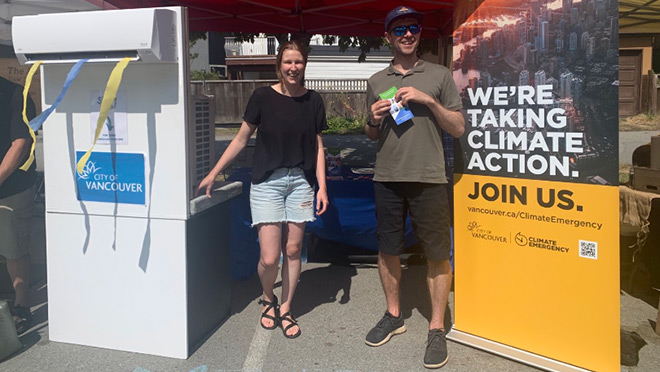
City of Vancouver takes mobile heat pump to the people
It's one thing to talk about how cool electric heat pumps are – it's another thing entirely to feel one in action.
That was the thinking behind a mobile demonstration unit the City of Vancouver's green buildings team recently built and brought out to a pop-up tent at the city's popular Trout Lake Farmers Market and the plaza outside the Vancouver Art Gallery.
The team configured a small "mini-split" heat pump to run off a standard 120-volt extension cord and set it to "cold" mode – blowing refreshing chilled air down on anyone who stood under it on the sweltering summer day. "People would walk by and feel the cool breeze, and they would come over," explains Brady Faught, a green buildings engineer with the City of Vancouver's sustainability team.
The team answered questions about heat pumps and available incentives and pointed people to additional information about zero-emissions home comfort.
Lower Mainland residents can check out the demo unit in action at the Riley Park Farmers Market October 22.